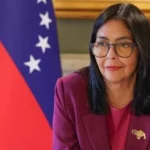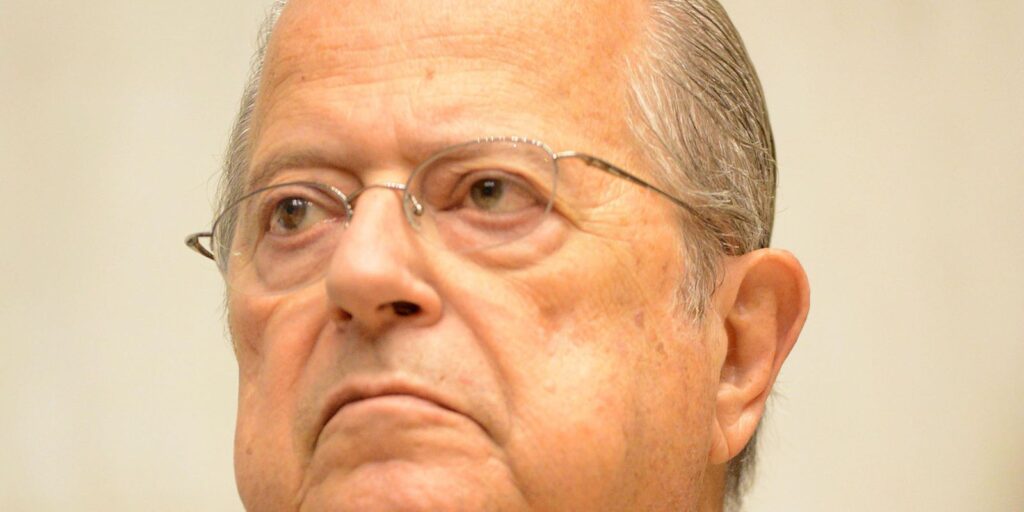Page Seven / La Paz
Are there feasible solutions to the crisis of justice? Why is the promised reform not materialized? What options are left to avoid deaths like Marco Aramayo’s? Those and other topics were addressed by Juan Del Granado and Eduardo Rodríguez Veltzé in the third streaming of P7 Plus.
Hosted by journalists Isabel Mercado and Tuffí Aré, the discussion program for subscribers had two notable lawyers as guests: former President Rodríguez Veltzé and former Mayor Del Granado. Both agreed on the urgency of judicial reform, although they envisioned different paths for that goal.
Del Granado described the death of Aramayo, the former director and whistleblower of the Fondioc embezzlement, as “a judicial murder.” “The death of Marco Aramayo is a painful tragic episode, but above all expressive of the absolute degradation of our administration of justice. An administration of justice that should defend the life, safety, and heritage of the people and does just the opposite. It’s backwards justice,” he said.
He considered that the tragedy of the judicial system is due to a series of historical shortcomings that have intensified in recent years: “lack of independence of judges, suitability of justice operators, division of powers, resources and lack of state strategies” .
You can also read: The second streaming of P7 Plus dissects the Russian invasion of Ukraine
Given this situation, Del Granado presented the proposal of the independent jurists, of which he is a part: replace the Legislative Assembly in the selection of applicants for judicial positions by a citizen commission, with qualified specialists, that qualifies merits, eliminating politics. This selection will be delivered in three lists to the Parliament so that after its purification it is submitted to a citizen referendum.
Eduardo Rodríguez Veltzé, for his part, argued that it is necessary to allow the investigations to rule on Aramayo’s death, but pointed out that there are responsibilities that fall on the Public Ministry, the Prosecutor’s Office and other institutions with functions established in the CPE.
He described the reform proposal of the independent jurists as interesting, but raised a reflection on the political consensus. “The change must not only take place in the high benches of magistrates, but in all the judges. If there is no political consensus we are not going to go anywhere. Now there is a Minister of Justice who replaces the Council of the Judiciary and speaks for the Supreme Court, which has distorted the division of powers,” said the former president.
For Del Granado, the government has shown that it has no political will to address judicial reform. “It is in the hands of the citizens to make use of the power that the Constitution gives them. Political consensus does not work, I trust the consensus of the people”, he stressed.
Rodríguez Veltzé asked the media for a higher level of questioning of the first leaders. “It cannot be that we do not have the voice of Arce to promote reform and call for consensus when people suffer. It should be a commitment of the President with responsibility before the citizens”, he stressed.
The challenges of the new Defender
The debate also addressed the election of the Ombudsman and the challenges that await him.
“The candidate who is elected must rebuild an Ombudsman’s Office demolished by politics; he must confront the power that violates human rights. The Ombudsman must first and foremost have high-level competence and responsibility to control the power that commits abuses. It must follow the legacy of Ana María Romero, who had a high flight, ”said Juan del Granado.
For his part, Rodríguez Veltzé said that one of the Ombudsman’s main challenges is 600 meters from his office and is the panopticon of San Pedro, which shows the delay in justice that affects the entire country: “a commitment to reform is urgent of justice”.
Another of the Ombudsman’s priorities, in his opinion, should be to provide citizens with mechanisms that allow them to protect themselves from abuses by public authorities, be they ministries, governorships or mayors’ offices. “Bolivia has a deficit of administrative law,” he stressed.
There is no will to reform and political consensus does not work. I trust people’s consensus
Juan Del Granado

It cannot be that we do not have the voice of Arce to promote reform and consensus when people suffer
Eduardo Rodriguez Veltze


















